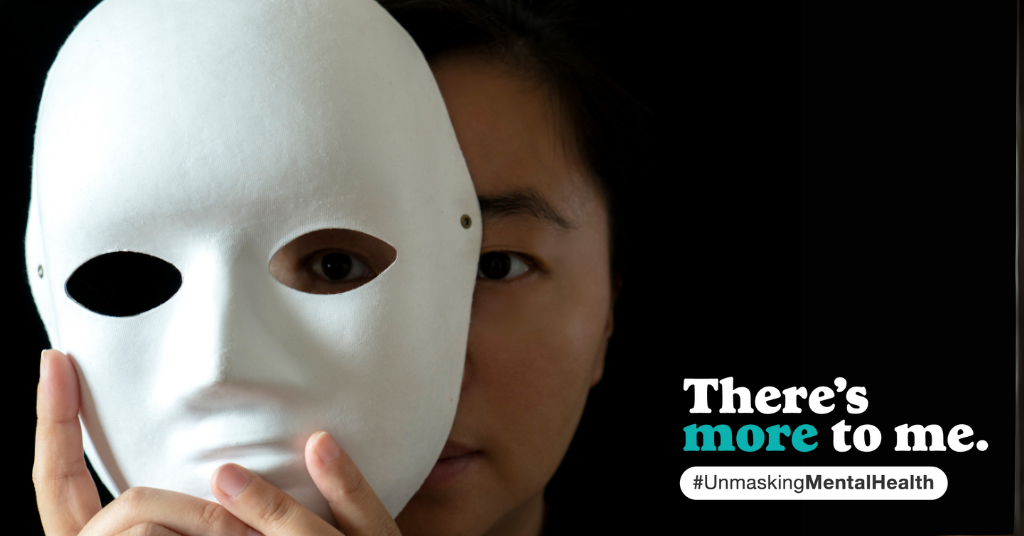Menu
Close

What masking is and why it may be doing more harm than good
May 5, 2025
Have you ever said “I’m fine” when you were anything but fine? Or pushed through burnout or exhaustion because you didn’t want to seem weak? Have you ever kept parts of your identity hidden to feel safer or more accepted? If so, you’re probably masking.
Masking is when we hide or suppress something about ourselves — emotions, personality traits, behaviours, or symptoms — from others. It’s a coping mechanism used to protect one from judgment, stigma, or discrimination and might be done consciously or unconsciously.
Following a traumatic injury, Jess began masking as a coping mechanism with one goal: to get through the day feeling and seeming as “normal” as possible.
I was masking all the time in all areas of my life…
“…I recall in the weeks after the accident, I would try and go about life as regularly as possible: meeting up with friends after work, going for walks around my neighbourhood, etc., but was feeling the need to act like the person I was before it all happened… essentially pretending it hadn’t happened at all.”
Everyone wears a mask sometimes—at work, online, even with loved ones. But while it may help us get through the day, it can come at a deep personal cost. Suppressing emotions can increase stress, reduce self-esteem, and make it harder to seek help when it’s most needed.
It can also prevent others from truly seeing us—and supporting us. When we mask, we unintentionally teach people that we’re “fine,” even when we’re not. Over time, this can lead to feelings of isolation, disconnection, and burnout.
It was absolutely exhausting to be constantly acting like everything was business as usual.
“Directly following my traumatic injury, it was a really strange feeling, and absolutely exhausting, to be constantly acting like everything was business as usual when my physical injuries were still bandaged up and in a state of healing. Now, nearly six years after the injury, I still get startled by environmental triggers that remind me of the experience and feel the need to internalize those feelings in the moment to push through. Internalizing my feelings doesn’t usually feel good because I’m not honouring my needs in the moment, but sometimes that’s (unfortunately) what’s required to carry on with the day.”
Masking isn’t just an individual coping strategy—it’s a reflection of a society that still stigmatizes vulnerability. But we can change that. Every time someone shares their story, checks in on a friend, or opens up about how they’re really doing, they help create a culture where it’s safe to show up as we are.
How to support someone who masks
Practice active listening: Everyone unpacks at their own pace. Be patient, avoid pushing, and let them know you’re there whenever they’re ready to share. Sometimes the best support is simply being there. Avoid jumping to solutions and instead offer a listening ear: “I hear you. That sounds really tough. Do you want to talk more about it?”
Check in regularly: You don’t need a crisis to check in. A simple “Hey, how’s your headspace lately?” can go a long way.
Respect boundaries: Everyone unpacks at their own pace. Be patient, avoid pushing, and let them know you’re there whenever they’re ready to share.
Although it may be daunting, unmasking, when it’s safe to do so, can help people form deeper connections, increase self-esteem and reduce stigma, all of which supports good mental health.
When asked what advice she would give someone struggling with masking or who feels like they need to mask to be accepted, Jess says:
Find the people you can be fully authentic with and keep them close…
“…Appreciate them (thank them for being a safe space), and don’t take them for granted. And try to be that person for someone else who needs it, too. Being a support system for others can be mutually beneficial in moving towards acceptance.”
This Mental Health Week (May 5-11, 2025), we’re #UnmaskingMentalHealth. For more information or to download the toolkit, visit mentalhealthweek.ca.
